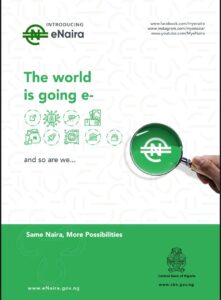By Chris Agabi
Worried by the sustained loss of value of the naira against major foreign currencies, the CBN has gone on the offensive against Forex hawkers and bureau de change operators, the forex channels considered a fertile ground for forex arbitrage, speculation and manipulation.
In new regulation, the CBN has completely outlawed street forex trading and raised the capital base of BDCs to unprecedented levels.
In a new new set of guidelines released to all BDC operators and stakeholders in the financial sectors released on Friday by the CBN Financial Policy and Regulation Department of the CBN, BDCs willing to obtain a license to operate in all 36 states and the FCT must have a minimum capital base of N2bn. Whilst BDCs wishing to operate within one state must have a minimum capital base of N500 million.
The new regulation makes provision for 2 tiers of BDCs.
Tier 1 will have a national presence, branches and franchises whilst Tier 2 is restricted to 1 state with max 3 locations.
Based on the new prescription, the minimum capital requirement for Tier 1 is N2 billion and the minimum capital for Tier 2 is N500 million.
Other fees and deposits to be specified going forward the CBN said.
The rules didn’t stop at capital requirements. There are other stringent measures. They are:
Business restriction: The new regulation makes it illegal for certain entities like banks, government agencies, NGOs etc to own stakes in BDCs.
In terms of permissible activities: BDCs can buy and sell foreign currencies, issue prepaid cards, serve as cash points for money transfer operators( to receive diaspora remittance).
However, they cannot take deposits, grant loans, deal in gold or engage in capital market activities. They must verify customer’s identity, keep transaction records, connect to CBN “real time” systems and display rates.
Regarding the sale of foreign currencies:- BDCs can sell forex for purposes such as travel, medical bills, and school fees, up to specified limits per customer annually.
At least 75 % of the sales must be conducted through electronic transfers, while the remaining 25% can be in cash.
In terms of sourcing foreign currencies:- BDCs can obtain forex from authorized dealers, travelers, hotels, embassies, and other sources. For large transactions exceeding $10,000, a declaration of the source is required.
Newly approved BDCs will also have automated reporting and returns rendering systems integrated with CBN, NIBSS & NFIU for live auditability and Real-time monitoring.
BDC are also expected to now publish audited financials in national dailies.
Finally the is a ban on offshore accounts operated by BDCs. Closing the offshore accounts may increase forex supply/inflow in the short term.
The policy underscored the fact that street traders of forex are not BDCs. Thus, street trading of forex has been outlawed and security agencies sent to clamp on them.
Experts believe that with the new CBN measures will streamline BDC operations, reduce arbitrage, reduce money laundering, end speculations and sanitise the Forex operations in the parallel market.
CBN Outlaws Street Forex Trading, Raises BDCs Licensing Fees to N2bn
Reading Time: 2 mins read
0
Leave a Reply Cancel reply
FOLLOW US
BROWSE BY CATEGORIES
BROWSE BY TOPICS
2023 Benue Budget
Abuja-Kaduna Rail
Access Corporation
Access pension
airports concession
Aviation
Ayu
Benue Budget
Benue Community
Buhari
Business
CBN
Central Bank
Dana Air
Economy
FGPL
Herdsmen
Herdsmen attacks
insecurity
insurance
Maritime
Min of Transport
MSMEs
NAICOM
NCAA
Nigeria
Nigeria -Cameroon Border Post
Nigeria Air
NRac
Onne Port
ooh
Orrom
Ortom
PDP
PenCom
pension
Railway
Sambo Jaji
Transcorp
Transcorp Group
Transcorp Hotels Plc
UBA
Ukohol
Wike
Wildon Ideva
Economy Footprint
The EconomyFootprint is published by Ideas Tent Communications Ltd®. All Rights Reserved.














